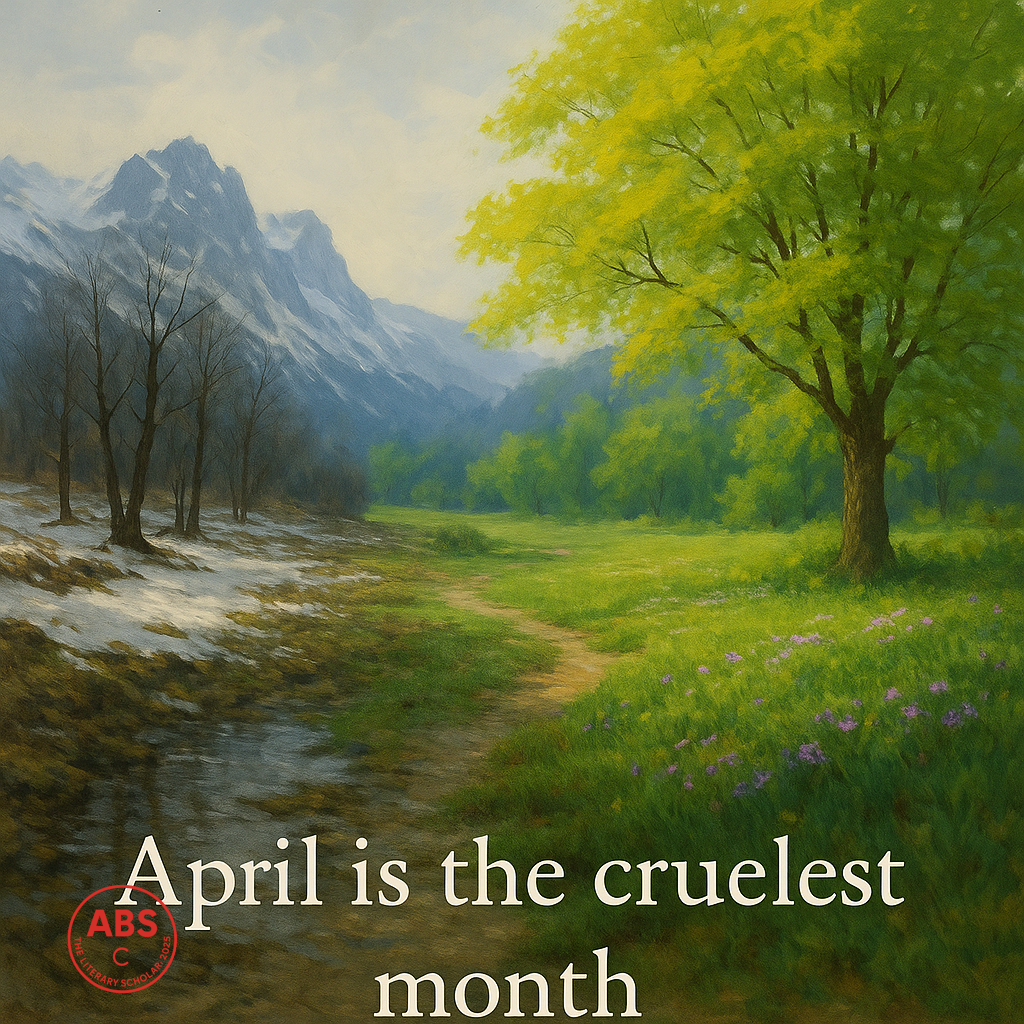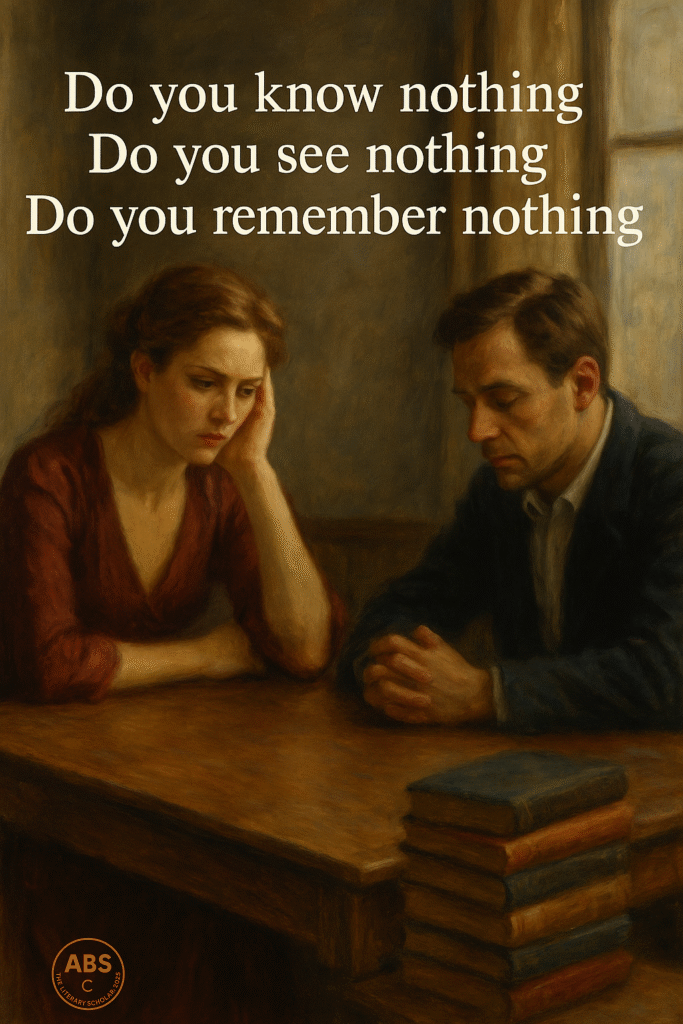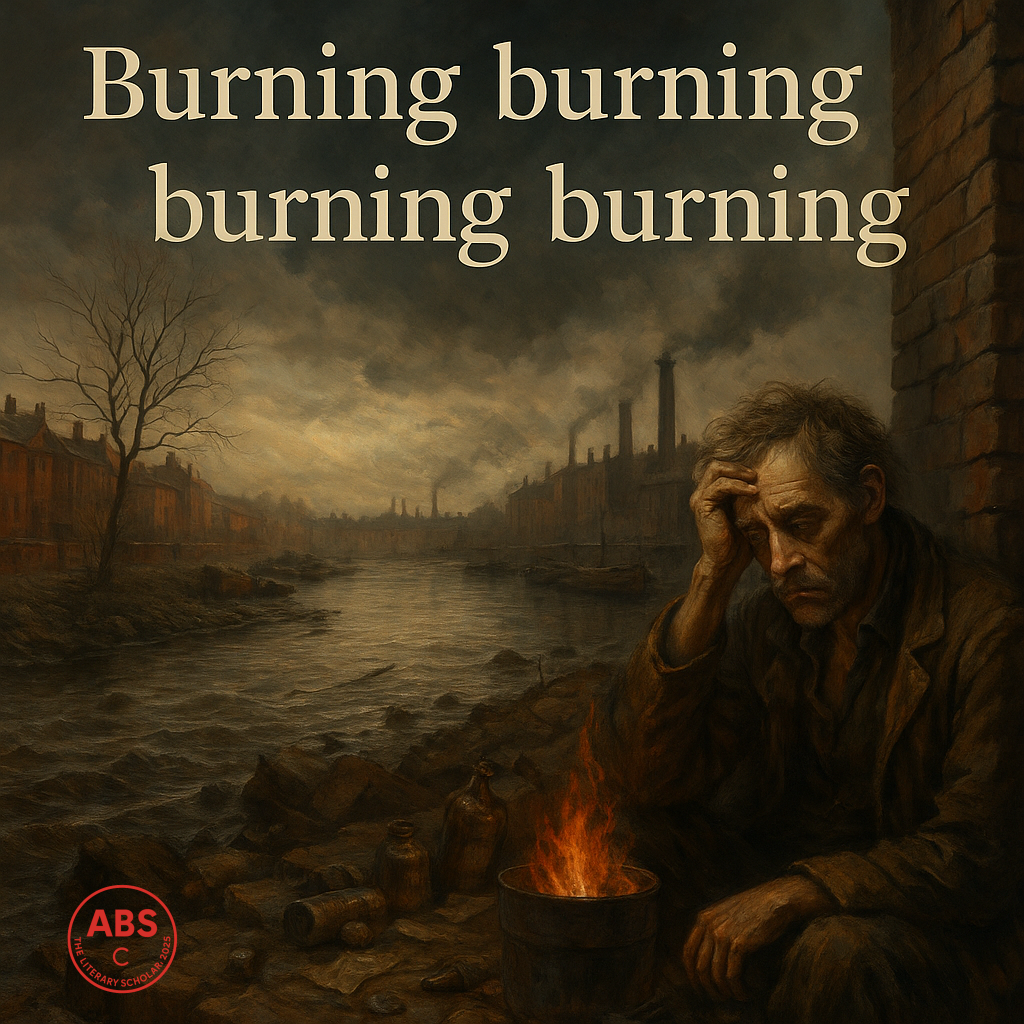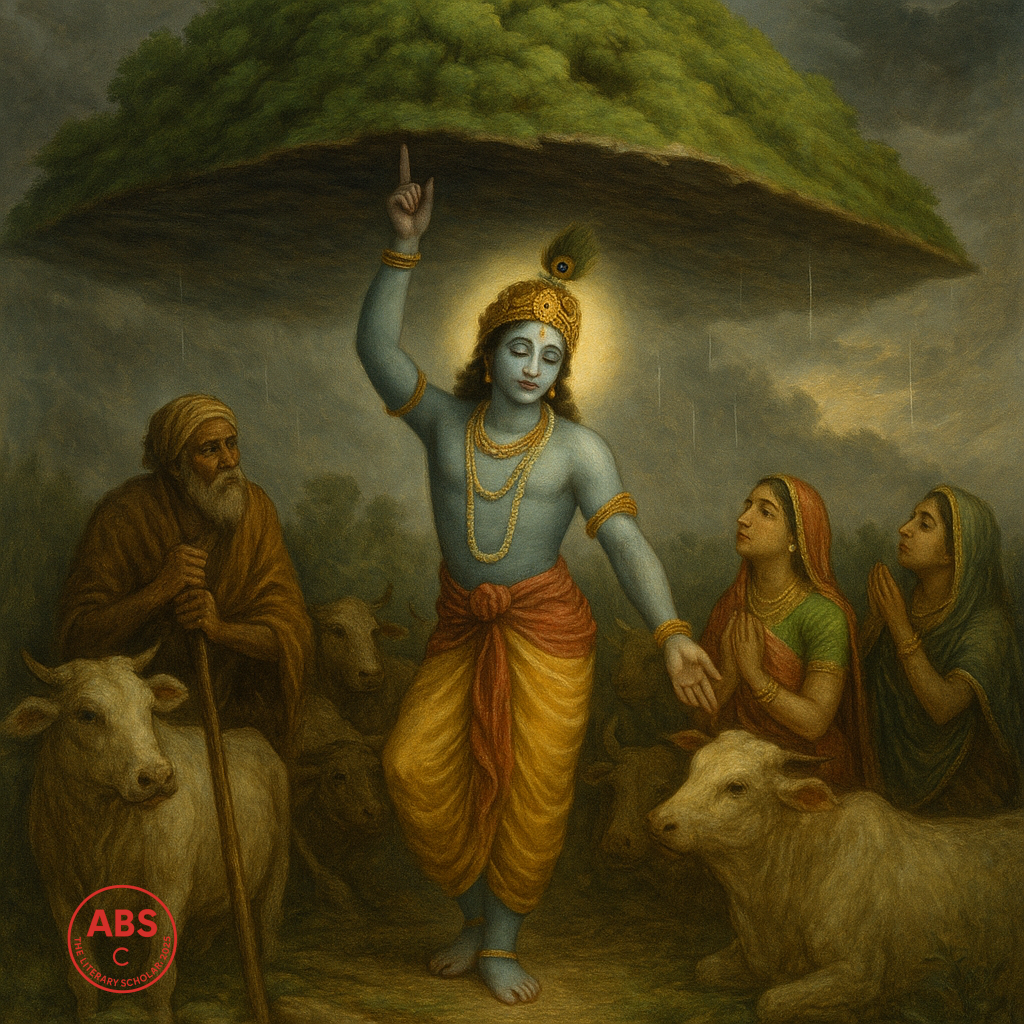By The Literary Scholar
(Who believes April is still cruel, just with faster Wi-Fi.)
Let’s begin with a dangerous question: Is T.S. Eliot still relevant?
This is the kind of question that either sparks a spirited literary debate or gets you politely escorted out of a graduate seminar. But ask it we must—because in a world that refreshes faster than it reflects, we owe it to the modern mind (and meme generation) to check if Eliot still walks among us.
We’re talking about a poet who once wrote, “I will show you fear in a handful of dust,” and we’re now scrolling through fear in a handful of pixels. Coincidence? Hardly.
The Original Influencer of Doom
Eliot wasn’t just a poet; he was the original content curator of despair. Long before BuzzFeed gave us “21 Signs You’re Emotionally Exhausted,” Eliot gave us The Waste Land—a five-part literary cryptogram that stitched together mythology, fragments, footnotes, untranslated sorrow, and the general mood of a man who’d just come back from the ruins of civilization and couldn’t find his Uber.
“April is the cruellest month,” he declared, and millions of students since have agreed—usually while submitting term papers.
But here’s the twist: for a poet obsessed with fragmentation, disillusionment, and the erosion of meaning, Eliot saw the future far too clearly.
Because if The Waste Land was about spiritual decay, disconnection, and the hollowness behind cultural facades—well, welcome to Webland, where disconnection is a design feature and culture is algorithmically served in 30-second loops.
Burnt Norton, Now Streaming
Eliot’s Four Quartets, his mature work full of meditative brilliance and temporal layering, asks us to “wait without hope, for hope would be hope for the wrong thing.”
Replace “hope” with “Wi-Fi” and you’ve basically summed up modern life.
He wrote of time as a circular, elusive force. We now experience time as an Instagram story—it vanishes in 24 hours and no one remembers it anyway.
Eliot speaks of stillness, of the “intersection of the timeless moment”—and we, meanwhile, schedule mindfulness apps to ping us reminders of inner peace between doom-scrolls.
“Distracted from distraction by distraction.”
—T.S. Eliot, also describing every visit to YouTube
Let that sink in. Eliot diagnosed the hyper-stimulated, emotionally exhausted state of the future mind before smartphones were even a spark in Silicon Valley’s eye.
The Algorithmic Waste Land
In The Waste Land, the modern world is a spiritual desert—rich with symbols, starved of meaning. Sound familiar?
We live in a content-saturated world where quotation has replaced conversation, and irony is cheaper than reflection. Everyone is talking, but no one is truly heard. Just like in Eliot’s fragmented epic, voices rise, echo, collide—none fully connect.
You could almost rebrand the poem for today as:
“The Influencer’s Lament: I had 100K followers and still felt empty.”
“These fragments I have shored against my ruins.”
—T.S. Eliot, hoarder of cultural meaning.
—Also, us, bookmarking articles we’ll never read.
Eliot, the Meme Lord of Meaninglessness
Let’s not forget Eliot’s sense of irony—sharp, subtle, and deeply dry. He gave us characters like J. Alfred Prufrock, a man who can’t even propose to a woman because he’s too caught up in his own insecurities and metaphors.
In today’s language, Prufrock is every overthinking introvert who drafts texts, deletes them, and then watches three seasons of existential TV.
“Do I dare disturb the universe?”
Translation: Should I double text?
Answer: No, Prufrock. Never do that.
In fact, Prufrock would thrive on Twitter—typing poetic self-doubt in 280 characters, wearing white flannel trousers, walking along the beach, and definitely not speaking to mermaids.
Still Relevant? Try Alarmingly Accurate.
Eliot doesn’t age because alienation doesn’t age.
He isn’t outdated; he’s embedded—like the sad, brilliant background music of modern consciousness. He remains the poet laureate of the mentally overstimulated, spiritually undernourished post-everything soul.
When Eliot wrote about disillusionment, he wasn’t being dramatic. He was mapping the collapse of coherence in a rapidly modernizing world.
We, his digital descendants, are simply living inside the architecture of that collapse—with better coffee.
The Literary Ghost in the Machine
There’s a reason Eliot’s work continues to haunt syllabi, Instagram poetry accounts, and the occasional introspective filmmaker.
Because every time the world feels a little more fragmented, a little more synthetic, Eliot’s lines come floating back—uninvited but undeniable.
“I have heard the key / Turn in the door once and turn once only / We think of the key, each in his prison.”
What is that, if not the perfect metaphor for online echo chambers?
We think we hold the key, but the prison is algorithmically reinforced.
So, Is Eliot Still Relevant?
Yes. Because we are still irrelevant.
Because we still scroll past meaning in search of dopamine.
Because we still feel hollow while surrounded by words.
Because we still ask, “Shall I part my hair behind?”
Because, in the quiet spaces between Google searches, some of us still hear:
“This is the way the world ends / Not with a bang but a whimper.”
And perhaps, on certain nights when the feed goes quiet, that whimper sounds like truth.
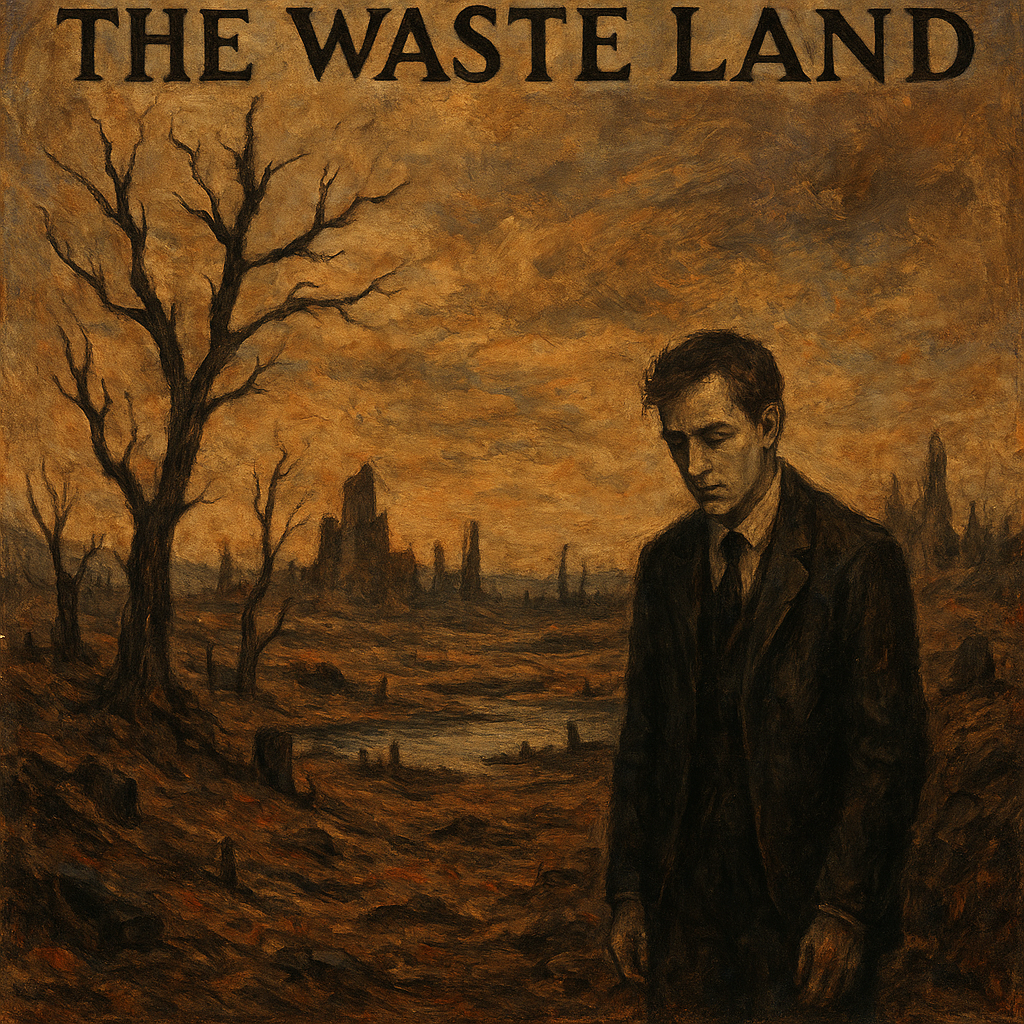
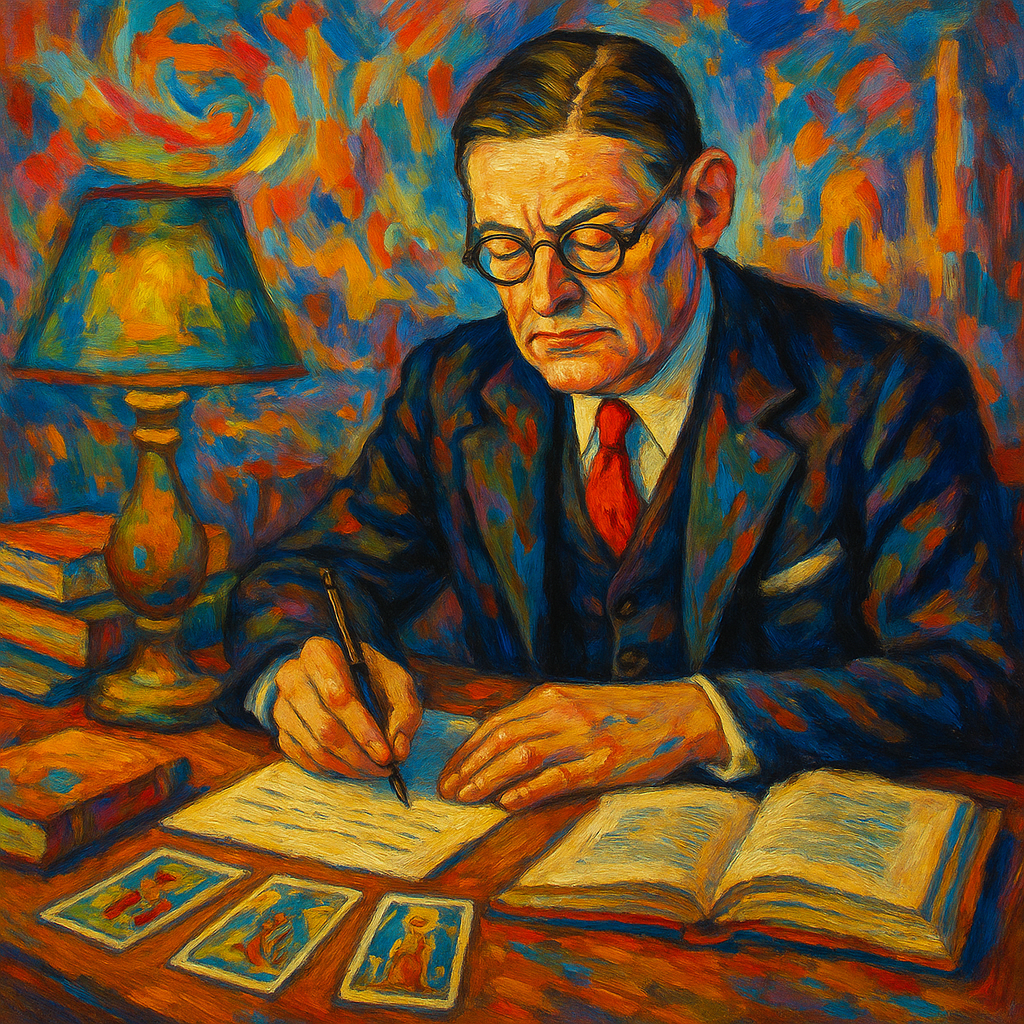
Read the complete Waste Land analysis in Lyric-Scroll 001
T.S. Eliot & The Waste Land: When Modernism Had a Meltdown in Five Acts
Dive into the chaos of Eliot’s poetic apocalypse—witty, wicked, and wonderfully analytical. This scroll takes you through:
All five parts of The Waste Land
The mythological framework (yes, Tiresias makes an appearance)
Why Eliot wrote it (hint: post-war despair and personal collapse)
A full critical appreciation—with sarcasm, smarts, and style
It’s Modernism, unraveled. Poetry, decoded. Confusion, beautifully explained
Share this post / Spread the witty word / Let the echo wander / Bookmark the brilliance

